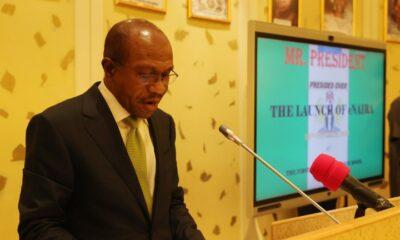Wema Bank, one of Nigeria’s leading financial institutions, has introduced a digital solution tailored for cooperative societies.
The innovative platform, named CoopHub, was developed to drive digital transformation and empower communities across Nigeria.
The unveiling of CoopHub took center stage at the bank’s anniversary celebration, held on Friday amidst much anticipation and excitement.
The launch of this pioneering platform underscores Wema Bank’s dedication to innovation and customer-centricity, aiming to revolutionize the operations of cooperative societies and address longstanding challenges within the sector.
At the heart of CoopHub lies a strategic vision to redefine the way cooperative societies function by providing tailored solutions that bridge the gaps inherent in traditional cooperative frameworks.
Designed to streamline operations, enhance communication, and promote financial inclusivity, CoopHub aims to empower cooperative societies and their members for optimal productivity and growth.
Moruf Oseni, the Managing Director/Chief Executive Officer of Wema Bank, emphasized the strategic importance of CoopHub in addressing the pain points faced by cooperative societies.
He highlighted challenges such as manual recordkeeping, limited access to loans, poor communication, insecurity, and other restrictions that CoopHub seeks to overcome. Oseni reaffirmed Wema Bank’s commitment to innovation and customer-centricity, stating that CoopHub represents a significant step forward in empowering communities across Nigeria.
Solomon Ayodele, Wema Bank’s Head of Innovation, elaborated on the transformative features of CoopHub, emphasizing its role in ushering cooperative societies into a new era of efficiency and transparency.
Ayodele highlighted features such as a digitized database for recordkeeping, user management capabilities for leaders, transparent overviews of contributions, seamless communication frameworks, and robust security measures, including a three-factor authentication system for withdrawals.
Ayodele urged cooperative societies to embrace CoopHub and experience the future of cooperative operations firsthand.
He emphasized the platform’s potential to eliminate conflicts, mistrust, and inefficiencies, offering a seamless and secure ecosystem for cooperative members to thrive.
The launch of CoopHub comes at a time when cooperative societies play a vital role in Nigeria’s socio-economic landscape.
According to the National Cooperative Financing Agency of Nigeria, over 30 million Nigerians belong to cooperative societies, highlighting the significant impact of these entities on community development and financial inclusion.
As Wema Bank embarks on its 79th year of operation, the introduction of CoopHub underscores the institution’s commitment to driving positive change and fostering sustainable growth within Nigeria’s cooperative sector.
With its innovative features and transformative capabilities, CoopHub promises to empower cooperative societies, enhance financial inclusivity, and catalyze socio-economic development across Nigeria.




 Naira4 weeks ago
Naira4 weeks ago




 Naira4 weeks ago
Naira4 weeks ago


 Naira3 weeks ago
Naira3 weeks ago


 News4 weeks ago
News4 weeks ago
 Travel4 weeks ago
Travel4 weeks ago




 Naira3 weeks ago
Naira3 weeks ago


 Jobs3 weeks ago
Jobs3 weeks ago
 Naira3 weeks ago
Naira3 weeks ago

















